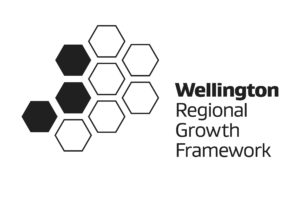
Project Director, Kim Kelly, says it was a deliberate decision to make sure the Framework reflects the concerns, issues and ideas of those within the different communities.
“Doing that has meant a lot of engagement with key parties – we need to hear the voices of those with an interest in the future development of our region.”
Engaging with partners and industry
Since November last year (2019) the Framework team has been engaging with mayors and councillors, local and regional councils and central government with input from the region’s iwi.
“We’ve been working hard to engage with mana whenua and develop a kaupapa for the Framework. Mana whenua have been involved in the steering group meetings, have contributed in health and education workshops, and will continue to be involved throughout the project. This Framework is an important opportunity for regional spatial planning to incorporate Te Ao Māori and to build upon our existing partnerships. Ongoing consultation and participation will ensure the aspirations of iwi and hapū are taken into account through the spatial plan.”
Ms Kelly says stakeholder workshops held in early January (2020) looked at and further developed scenarios to do with the natural environment and climate change, having a vibrant economy and transitioning faster to zero carbon and social equity.
“Technical workshops held on housing and education, three waters networks (water, stormwater, wastewater), business and economy all fed into these scenarios.”
Additional workshops were held with interest groups and industry organisations representing different sectors of our population, including those from farming, business, education, health and urban development sectors.
Development types
“It was at these workshops that we started to talk about different housing development types.”
Ms Kelly says a regional workshop was held in late February for all the councils where the region’s councillors and mayors were invited to one joint working session. Having all the councillors from across the region together to focus on this work was one of a few times this has occurred for any project. They were keen for another similar event to occur later in the project.
“We were teasing out where future development could be and what key projects would be needed to implement those. It was really good to see the general consistency of views from different councillors across the region.”
Next steps
“We’ve taken on board the feedback from all the workshops and we’re now working on the next phase of the project which is development and then selection of the different urban form options and infrastructure we need to develop to meet future growth needs.”
Ms Kelly says the Framework team is assessing the options and working towards identifying a preferred urban form option and preferred programme of activities.
“As part of this work we need to scope the infrastructure required to support this development. For instance, roads, water, stormwater and wastewater, and access to social services.”
The Framework will then be taken out to interested parties and to the community for comment, says Ms Kelly. This is likely to occur in the second half of 2020.

